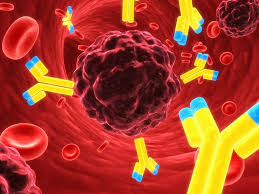IMMUNOLOGY
Introduction
Immunology is both, a branch of science that deals with the study of the immune system in the human body and a field of medicine which treats diseases caused by immune system disorder. Immunity is the body's ability to resist a disease and the immune system is a network, encompassing bone marrow, white blood cells, the entire lymph system and even the skin, which binds the cells and the organs to defend the body against foreign elements. Failure of a human’s immune system can cause simple diseases like allergies and may also led to complex and chronic diseases.
Nature of Work
Immunologists
- Study all aspects of the immune system including its structure and function, disorders of the immune system, blood banking, immunization and organ transplantation.
- Since the immune system is so broad, encompassing everything from blood cells to skin, so is the work of an immunologist.
- Responsible for the treatment of disorders as simple as common allergies and as complex as AIDS.
- Also have important roles to play in applied biology, developing new medical technologies such as gene therapy and xenotransplantation.
|
Education |
Admission Requirements |
|
|
BS MS Ph.D. |
4 Years 2 Years 3-5 Years |
|
|
Qualities Required |
Job Opportunities |
|
|
|
|
Views: 10227




